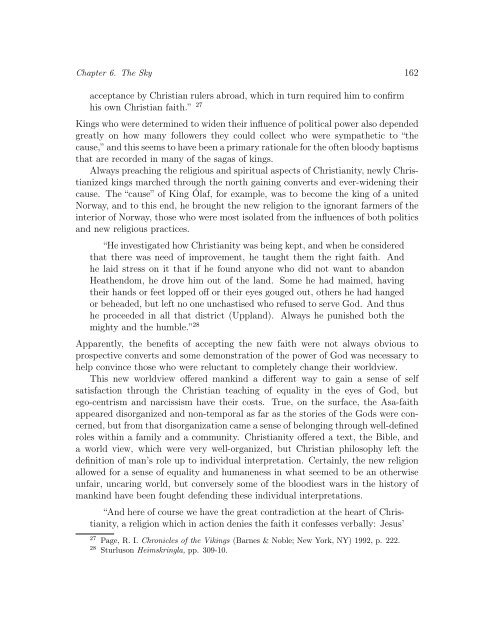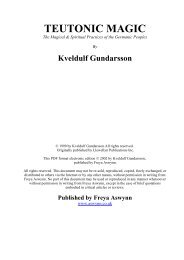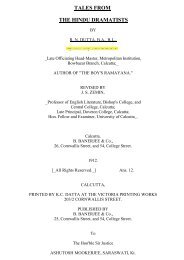Untitled - Awaken Video
Untitled - Awaken Video
Untitled - Awaken Video
Create successful ePaper yourself
Turn your PDF publications into a flip-book with our unique Google optimized e-Paper software.
Chapter 6. The Sky 162<br />
acceptance by Christian rulers abroad, which in turn required him to confirm<br />
his own Christian faith.” 27<br />
Kings who were determined to widen their influence of political power also depended<br />
greatly on how many followers they could collect who were sympathetic to “the<br />
cause,” and this seems to have been a primary rationale for the often bloody baptisms<br />
that are recorded in many of the sagas of kings.<br />
Always preaching the religious and spiritual aspects of Christianity, newly Christianized<br />
kings marched through the north gaining converts and ever-widening their<br />
cause. The “cause” of King Ólaf, for example, was to become the king of a united<br />
Norway, and to this end, he brought the new religion to the ignorant farmers of the<br />
interior of Norway, those who were most isolated from the influences of both politics<br />
and new religious practices.<br />
“He investigated how Christianity was being kept, and when he considered<br />
that there was need of improvement, he taught them the right faith. And<br />
he laid stress on it that if he found anyone who did not want to abandon<br />
Heathendom, he drove him out of the land. Some he had maimed, having<br />
their hands or feet lopped off or their eyes gouged out, others he had hanged<br />
or beheaded, but left no one unchastised who refused to serve God. And thus<br />
he proceeded in all that district (Uppland). Always he punished both the<br />
mighty and the humble.” 28<br />
Apparently, the benefits of accepting the new faith were not always obvious to<br />
prospective converts and some demonstration of the power of God was necessary to<br />
help convince those who were reluctant to completely change their worldview.<br />
This new worldview offered mankind a different way to gain a sense of self<br />
satisfaction through the Christian teaching of equality in the eyes of God, but<br />
ego-centrism and narcissism have their costs. True, on the surface, the Asa-faith<br />
appeared disorganized and non-temporal as far as the stories of the Gods were concerned,<br />
but from that disorganization came a sense of belonging through well-defined<br />
roles within a family and a community. Christianity offered a text, the Bible, and<br />
a world view, which were very well-organized, but Christian philosophy left the<br />
definition of man’s role up to individual interpretation. Certainly, the new religion<br />
allowed for a sense of equality and humaneness in what seemed to be an otherwise<br />
unfair, uncaring world, but conversely some of the bloodiest wars in the history of<br />
mankind have been fought defending these individual interpretations.<br />
“And here of course we have the great contradiction at the heart of Christianity,<br />
a religion which in action denies the faith it confesses verbally: Jesus’<br />
27 Page, R. I. Chronicles of the Vikings (Barnes & Noble; New York, NY) 1992, p. 222.<br />
28 Sturluson Heimskringla, pp. 309-10.
















